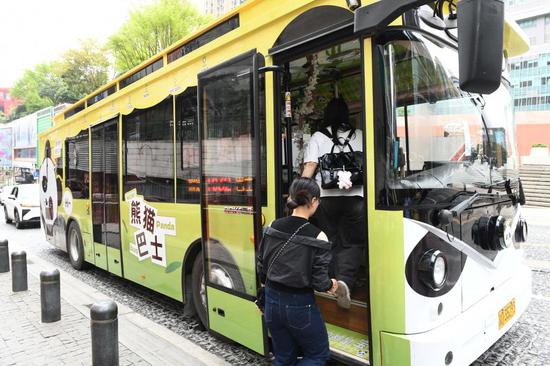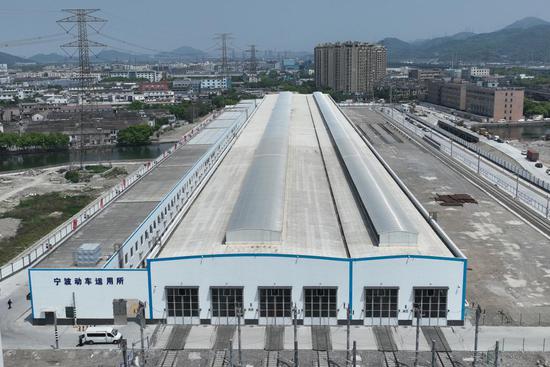Chinese e-commerce platforms are speeding up their push into Southeast Asia to cultivate new customers and rev up sales, as cross-border online marketplaces have become an important new driving force for bolstering the growth of China's foreign trade amid external uncertainties.
TikTok Shop, the e-commerce marketplace of popular short-video app TikTok, which is owned by Chinese tech giant ByteDance, has already entered Malaysia, Vietnam, Singapore, Indonesia, the Philippines and Thailand.
TikTok CEO Shou Zi Chew said the company is planning to invest billions of dollars in Southeast Asia over the next few years. While TikTok did not provide a detailed breakdown of its planned investments, Chew said the company would provide training and support to small vendors looking to join TikTok Shop.
He added that content on the platform was becoming more diversified as it adds more users and expands beyond advertising into e-commerce, allowing consumers to purchase goods through links on the app during livestreaming.
According to Momentum Works, a Singapore-based venture outfit, TikTok Shop has become the second-largest e-commerce platform in Southeast Asia behind Shopee, with Vietnam and Thailand being the fastest growing e-commerce markets.
Online discounter PDD Holdings, the parent company of Chinese e-commerce platform Pinduoduo, has launched its cross-border e-commerce platform Temu in Southeast Asian countries including Malaysia, Thailand and the Philippines.
Temu offers a wide selection of merchandise, including apparel, consumer electronics, jewelry, shoes, cosmetics and baby products with deep discounts and coupons as part of its strategy to attract price-conscious consumers in the region. Most of the products are shipped directly from factories or warehouses in China.
Chen Lei, chairman and co-chief executive officer of PDD Holdings, said the company hopes to leverage the supply chain capacity it has accumulated over the years to create a new channel that enables consumers in different countries and regions to directly purchase products from factories, providing more flexible and personalized supply chains, as well as more cost-effective shopping experiences.
Data from research firm eMarketer shows that revenue from the e-commerce market in Southeast Asia stood at $113.9 billion in 2023, up 18.6 percent year-on-year, significantly surpassing the global average growth rate of 8.9 percent.
Google, Temasek and Bain &Company said in a report that Southeast Asia's digital economy reached $263 billion in gross merchandise value or GMV in 2024, with sectors like e-commerce surging 15 percent year-on-year to $159 billion, fueled significantly by video commerce.
It added that video commerce is reshaping the e-commerce landscape in the region, driving impressive growth and transforming local consumers' shopping experiences. From live shopping to creator-led content, video is now an integral part of how people shop online.
Southeast Asia presents vast opportunities for Chinese cross-border e-commerce platforms aspiring to expand their footprint globally, thanks to the increasing penetration rate of internet and smartphone use, as well as gradually improved logistics networks, payment systems and supply chains in the region, said Chen Tao, an analyst at the Beijing-based internet consultancy Analysys.
"Price, quality and service are the most important factors consumers consider when buying products, and cost-effective commodities have shown obvious advantages amid global economic downward pressure," Chen said.
He added that one of the core strengths of Chinese cross-border online marketplaces in Southeast Asia lies in products with competitive prices and fast delivery, which are highly dependent on the establishment of supply chains.
China's cross-border e-commerce sector has seen robust growth in recent years. The sector's total imports and exports reached 2.63 trillion yuan ($359.74 billion) in 2024, an increase of 10.8 percent year-on-year, said the General Administration of Customs.
Moreover, Chinese tech heavyweight Alibaba Group has ramped up investment in Lazada, its online retail unit in Southeast Asia amid intensifying competition. Lazada received its first investment from Alibaba in 2016 when the Hangzhou-based company took a controlling stake.


















































 京公網安備 11010202009201號
京公網安備 11010202009201號